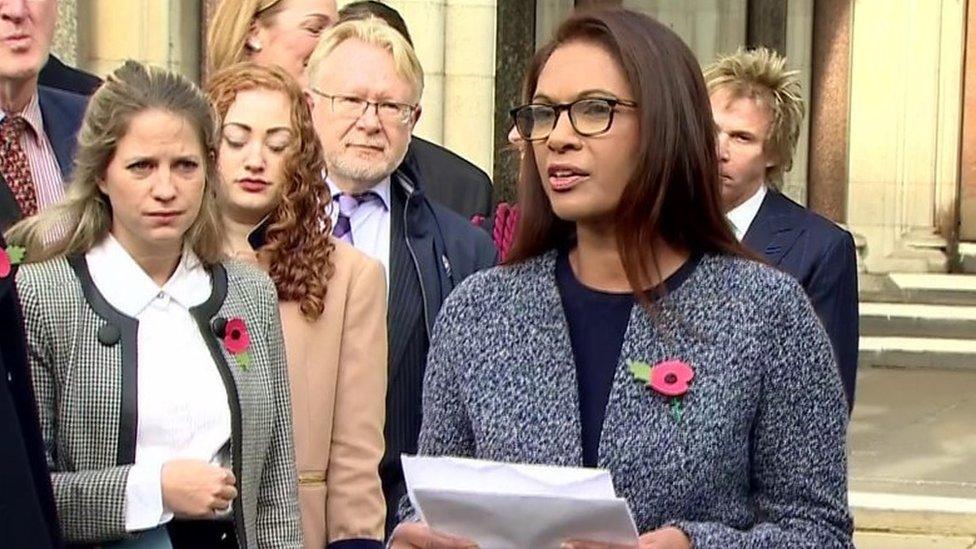Gina Miller: Who is campaigner behind Brexit court cases?
- Published
Campaigner Gina Miller reacts to the judgement outside the Supreme Court on Tuesday
Gina Miller is the businesswoman and campaigner who has twice led legal challenges against the government and won.
Her first victory came in September 2017, when the Supreme Court ruled in favour of giving MPs a say over triggering Article 50 - the legal mechanism taking the UK out of the EU.
Her second came on Tuesday, when the Supreme Court ruled that Boris Johnson's decision to suspend Parliament was unlawful.
Her success in the courts has come at a price - she has become a hate figure for many Brexit supporters and has had to employ round-the-clock security after threats to her life.
She says she does not want to block Brexit, but is standing up for Parliamentary democracy.
Speaking outside the Supreme Court after the ruling on Tuesday, she said: "Today is not a win for any individual or cause, it's a win for Parliamentary sovereignty, the separation of powers and the independence of our British courts.
"Crucially, this ruling confirms that we are a nation governed by the rule of law."
Mrs Miller is not officially aligned to any political party, having spurned the advances of the Liberal Democrats, who rapturously received a speech she gave at their 2018 party conference.

A 54-year-old investment manager and philanthropist, Mrs Miller was born in Guyana and educated in Britain.
She went first to an exclusive all-girls private boarding school, Roedean, on the outskirts of Brighton, at the age of 10, then to Moira House Girls' School, in Eastbourne, East Sussex.
Afterwards, she studied law at the University of East London, but left before completing her degree.
'Black widow spider'
Mrs Miller went on to start a successful marketing consultancy business with clients including private medical specialists in Harley Street in London.
In 2009, she used the money she had made in marketing to co-found an investment firm supporting smaller charities.
"I realised then it was my money, I could do what I wanted with it and so I used that money to get involved in social justice," Mrs Miller told Unfiltered with James O'Brien, external last year.
And in 2012, the businesswoman began the True and Fair Campaign, which campaigned for greater transparency in the City of London's fund management industry.
According to an interview with the Financial Times in 2016, external, this led some in the industry to label her the "black widow spider".
Speaking about a time she asked three men at an industry party why they were staring at her, she told the paper: "One of them replied that I was a disgrace and that my lobbying efforts would bring down the entire City."

Mrs Miller launched her first Brexit legal case with London-based Spanish hairdresser Deir Tozetti Dos Santos and the People's Challenge group, set up by Grahame Pigney - a UK citizen who lives in France.
Backed by a crowd-funding campaign, they argued the government could not invoke Article 50 of the Lisbon Treaty - starting the formal process of the UK leaving the EU - without seeking approval from Parliament.
Mrs Miller argued only Parliament could make a decision leading to the loss of her "rights" under EU law.
But she stressed the challenge was not an attempt to overturn the referendum decision, telling BBC Radio 4's Today programme: "We are all leavers now."
'Verging on dictatorship'
In November 2016, three High Court judges ruled Parliament had to vote on when the process could begin.
Speaking after her victory, Mrs Miller told the BBC the case was about scrutinising the details of Brexit, such as "how we leave, how they're going to negotiate, the directions of travel the government will take".
And she said the legal challenge was about more than Brexit, arguing that it was "verging on dictatorship" for a prime minister to be able to take away people's rights without Parliament's consent.
The government appealed, and the case went to the Supreme Court the following December, but the 11 judges rejected it by a majority of eight to three.
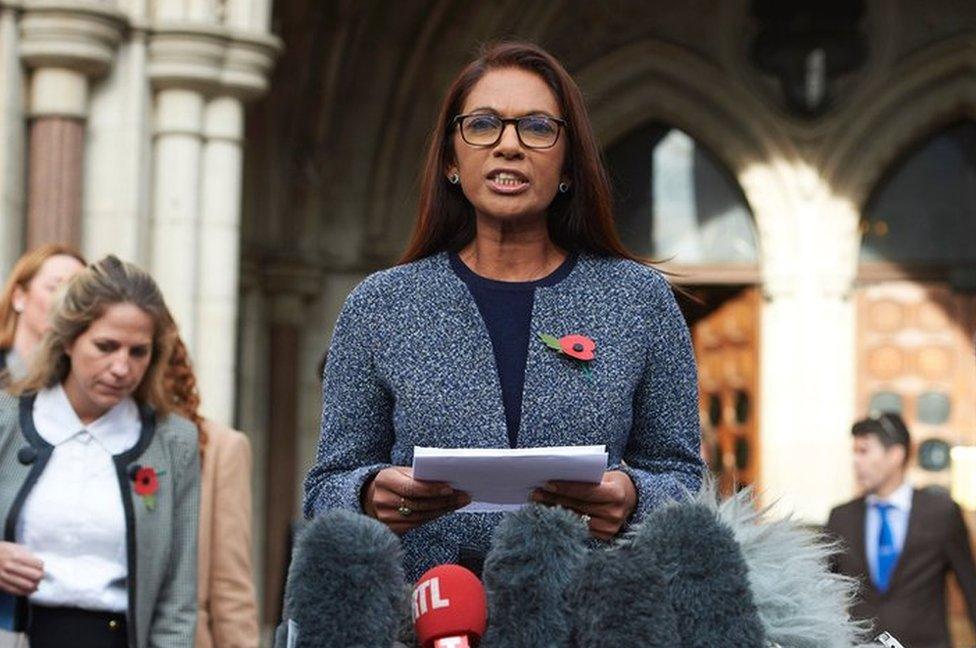
Mrs Miller after winning her High Court legal challenge in November 2016
Following the successful legal challenge, Mrs Miller suffered online abuse, including rape and death threats against her and her family.
She told James O'Brien: "It has changed the way we live our lives, and the conversations we have with the children".
"We use humour a lot because that's the only way to get through it", she told him.
In July 2017, an aristocrat who wrote a Facebook post offering £5,000 to anyone who ran over Mrs Miller was sentenced to 12 weeks in prison.
Describing the businesswoman as a "boat jumper", Rhodri Colwyn Philipps - the 4th Viscount St Davids - wrote: "If this is what we should expect from immigrants, send them back to their stinking jungles."
The peer claimed the comments were "satire" and a "joke".
But the judge, who said the post effectively put a "bounty" on Mrs Miller's head, found him guilty of two charges of making menacing communications.
Later that year, Mrs Miller was named as Britain's most influential black person.
"It's amazing to get an accolade when what I've done has solicited a huge amount of abuse," she said on receiving her title.
"To have somebody acknowledge me is extraordinarily kind and counters a lot of what I still get on a daily basis."

Mrs Miller arrived at the Supreme Court in 2017 flanked by security guards, having received death threats
Despite the backlash, Mrs Miller went on to launch a second challenge against the government to "defend Parliamentary sovereignty".
After Mr Johnson announced in August that he would suspend Parliament for five weeks, Mrs Miller challenged the legality of the decision at the High Court.
She argued that Parliament would be "silenced" for an "exceptional" length of time in the critical period before the 31 October Brexit deadline.
She initially lost her case, but in Scotland, a separate legal challenge succeeded, with judges taking the view that the suspension was unlawful.
The UK government appealed to the Supreme Court against the Scottish judgement, and the two cases were then heard together.
The court unanimously ruled in favour of Mrs Miller's appeal and against the government's.
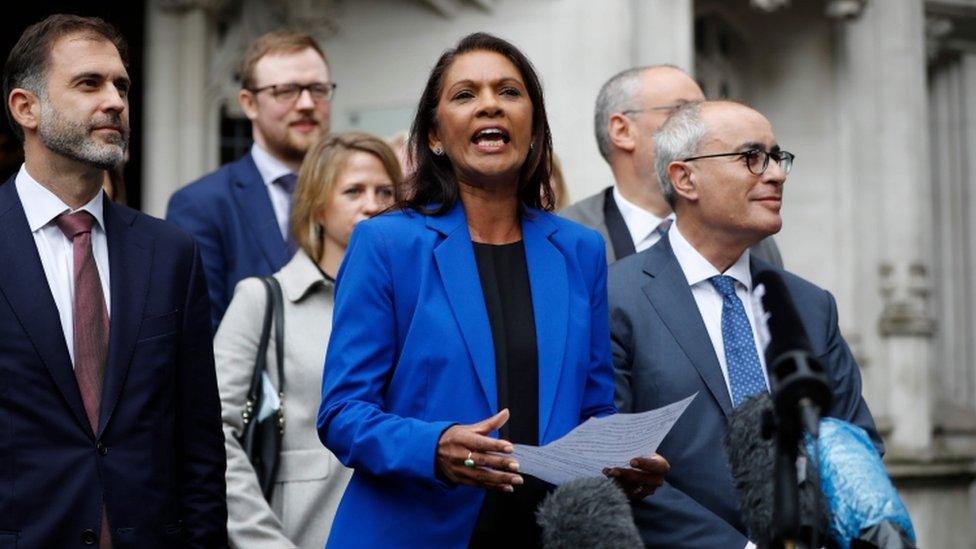
Gina Miller spoke to the media outside the Supreme Court after her victory
Judges said it was wrong to stop MPs carrying out duties in the run-up to the Brexit deadline on 31 October.
After the ruling Mrs Miller told reporters the ruling showed the government "will push the law, they will push the constitution and they will even bend it to get their own way".
- Published8 December 2016
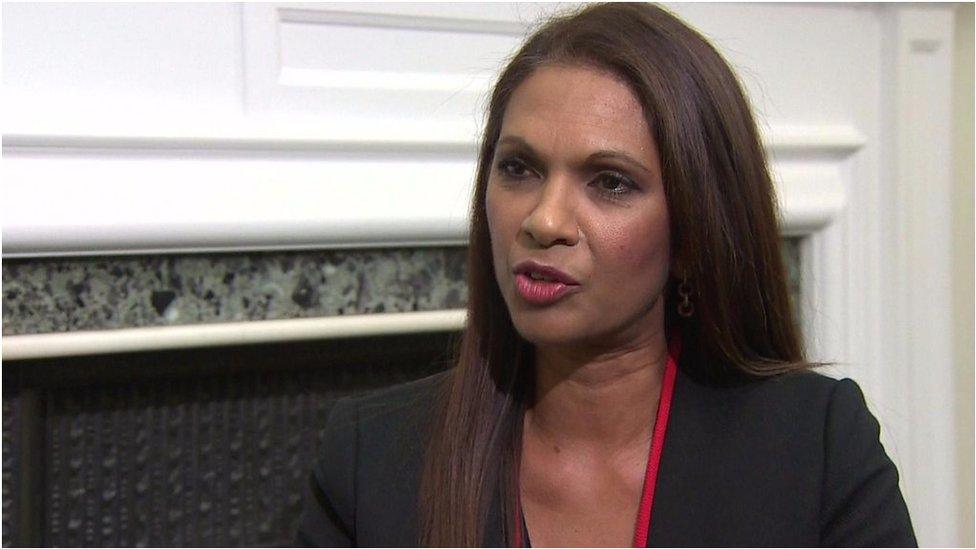
- Published7 December 2016

- Published5 December 2016
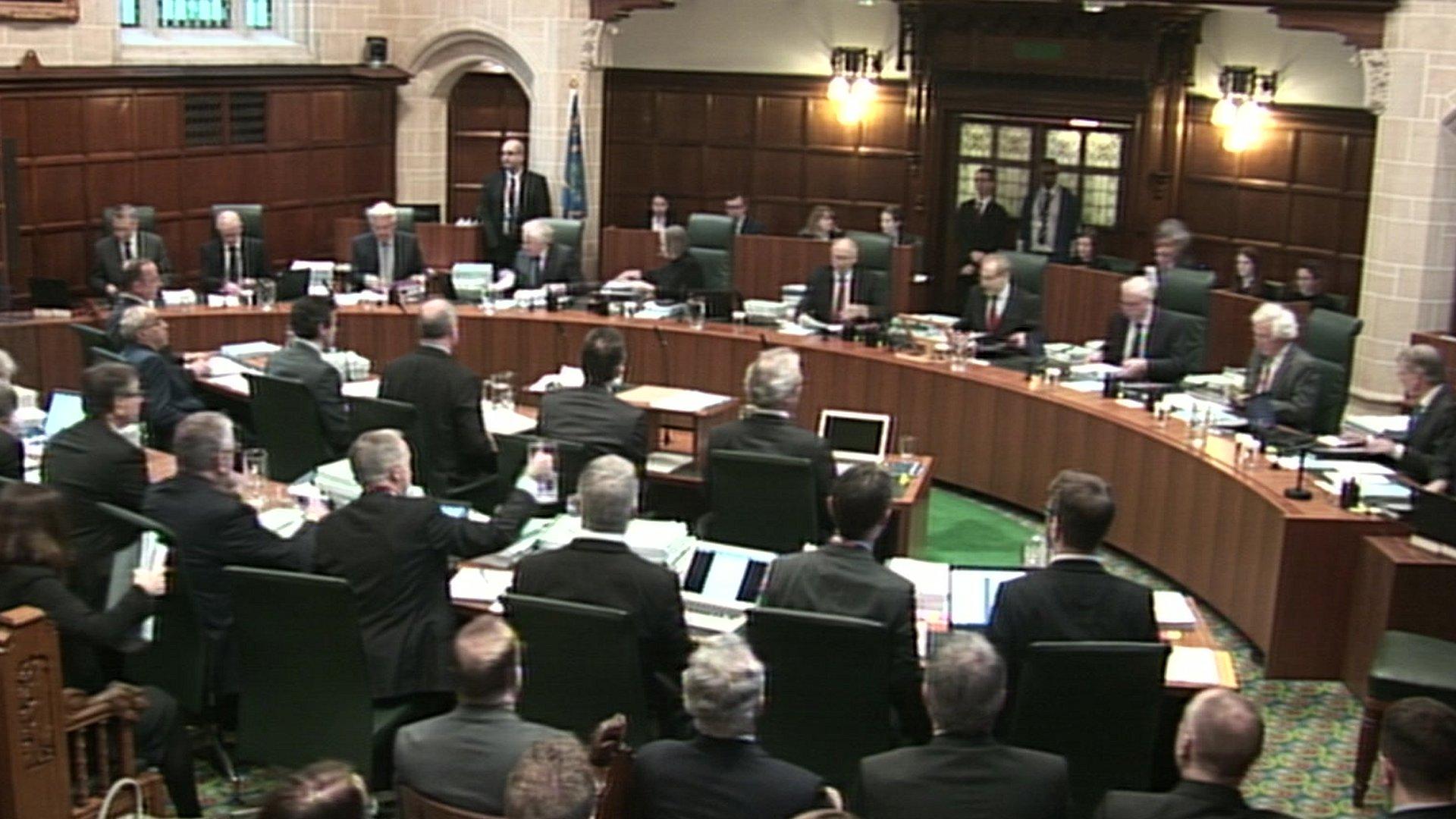
- Published4 December 2016
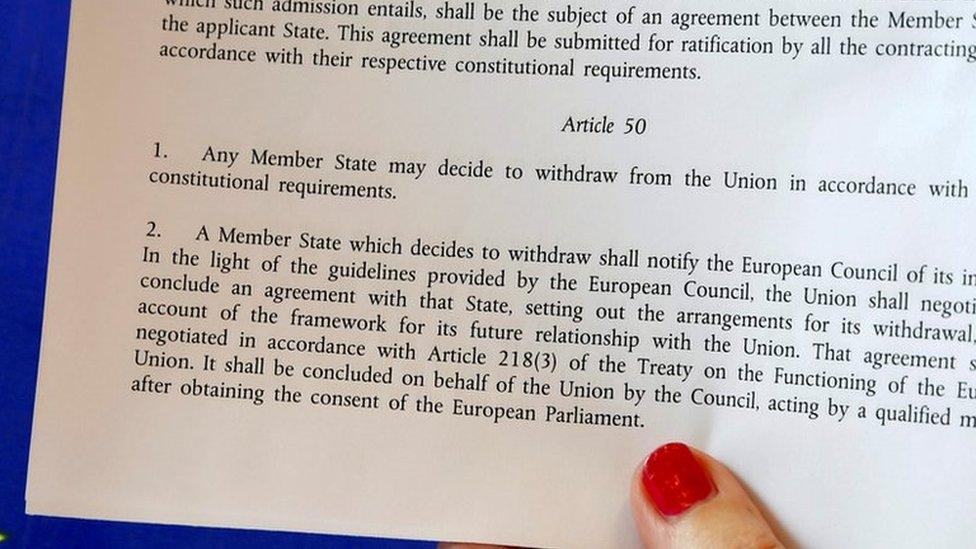
- Published5 December 2016
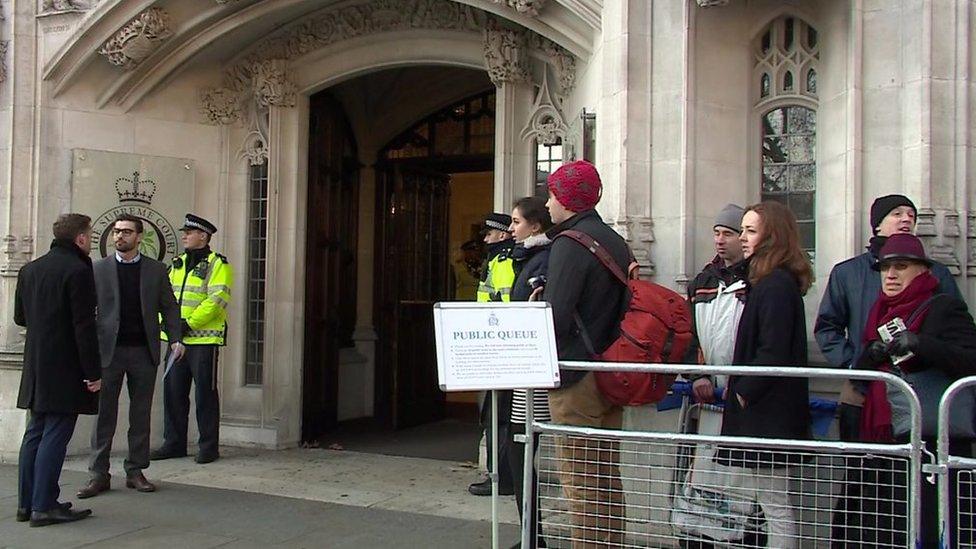
- Published3 November 2016
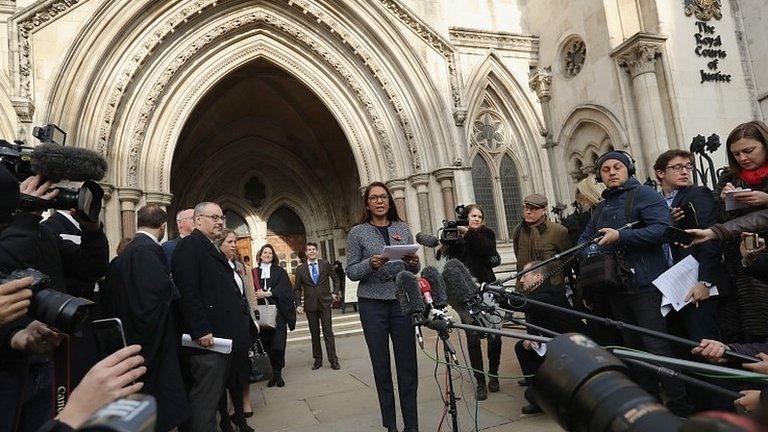
- Published31 October 2016

- Published3 November 2016
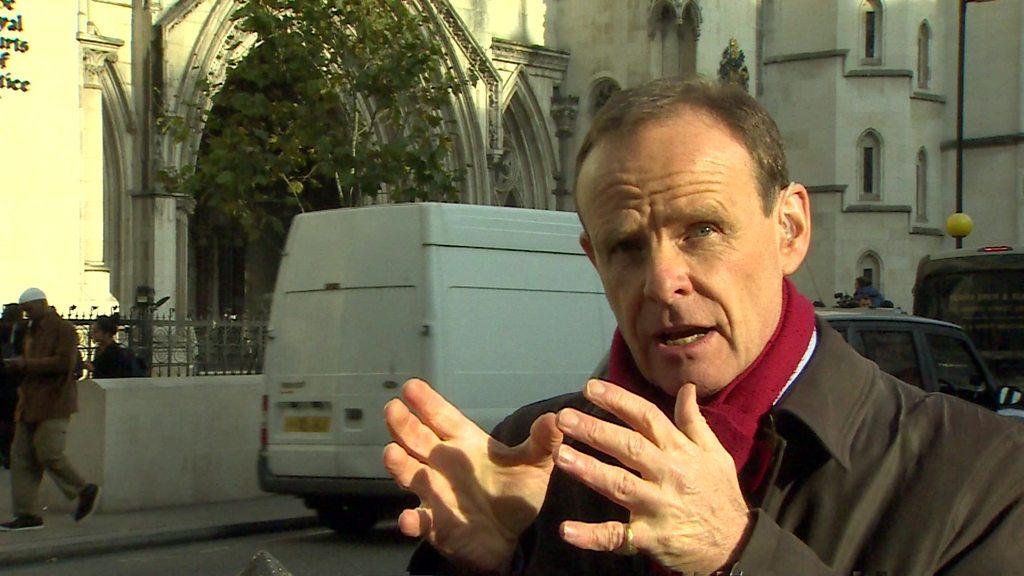
- Published3 November 2016

- Published3 November 2016
